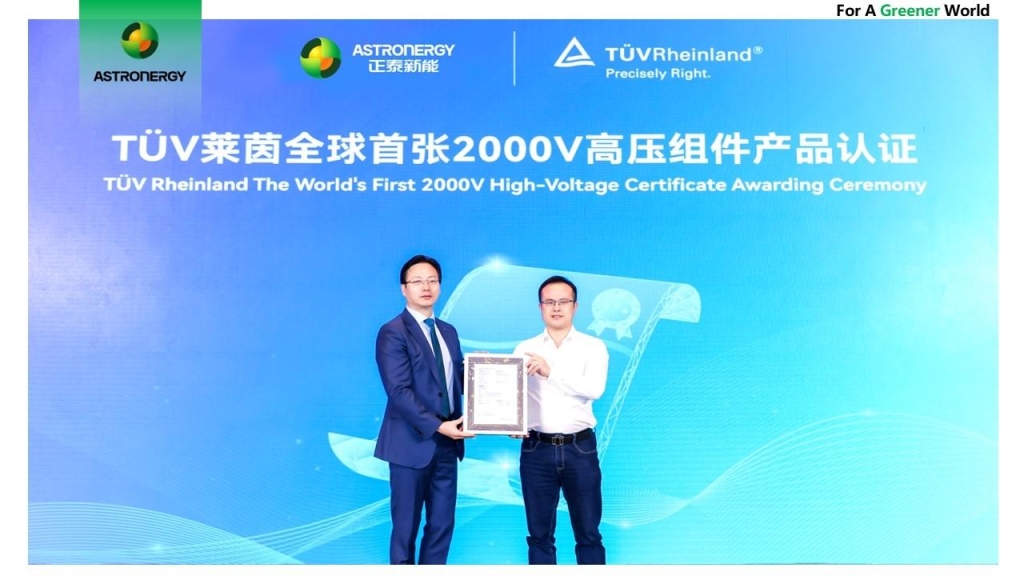


The solar storage industry has evolved significantly in recent years, with system voltages rising from 600V to 1500V. Products with higher voltages will greatly enhance overall power conversion efficiency while reducing system losses. Considering the opportunities for cost reduction in solar storage systems become increasingly limited, higher voltage modules are expected to become mainstream in the future.
By increasing system voltage, Astronergy's ASTRO N 2000V high-voltage PV modules reduce the quantity of electrical equipment such as combiner boxes, inverters, etc., so that customers will benefit from lower BOS costs. Moreover, these modules offer enhanced efficiency by minimizing energy loss in transmission, making them ideal for large-scale installations.
Back in September 2024, Astronergy's ASTRO N n-type TOPCon PV modules won the "High-voltage PV Module Performance AMQ Award" by passing rigorous tests, including impulse voltage test, enhanced PID test, and insulation test.
Utilizing TOPCon 4.0 cell technology and large-size rectangular wafers, Astronergy's ASTRO N 2000V high-voltage PV modules represent a major advancement in solar technology, which will set a new industry benchmark for providing customers with more efficient and cost-effective module products.
“We are excited about this achievement and this serves as a strong recognition of Astronergy’s technological strength,” said Dr. Chenxu He, Module R&D Director at Astronergy. He also shared, “Astronergy's 2000V high-voltage PV modules are expected to accelerate the adoption of solar energy by offering more economic and operational benefits. With the introduction of these modules, Astronergy will continue to lead the solar industry to greater efficiency and reliability.”
